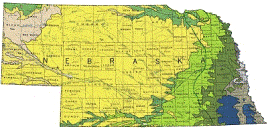United States Geological Survey

United States Geological Survey: Staff Publications
Document Type
Article
Date of this Version
2010
Citation
Published in Technical Report HCSU-015 (May 2010) 150 pages.
Abstract
Five rare or endangered plant species native to Kīpuka Puaulu and Kīpuka Kī were studied for two years to determine their stand structure, patterns of reproductive phenology, success of fruit production, potential pollinators, greenhouse seed germination rates, presence of soil seed banks, impacts of seed-predating rats, seed predation by insects, seedling predation by Kalij pheasant (Lophura leucomelanos), and seedling survival with different treatments. Species monitored were the trees Hibiscadelphus giffardianus (hau kuahiwi), Melicope hawaiensis (manena), M. zahlbruckneri (alani), and Zanthoxylum dipetalum var. dipetalum (kāwa`u), and the vine Sicyos macrophyllus (`ānunu).
Limiting factors identified for H. giffardianus were rat predation of seeds, bark-stripping, low fruit production likely resulting from the inter-relatedness of the planted population, and loss of original pollinators. For M. hawaiensis, rat and native insect predation of seeds limited the number of seeds available, and natural seedling recruitment was very low. Pollination was effected by an alien insect species. For M. zahlbruckneri, native insect predation and rat depredation greatly reduced the number of seeds available for germination. The low proportion of flowers that became fruit indicated a lack of successful pollination or self-incompatibility. For S. macrophyllus, rat predation of seeds on the ground and in the seed bank reduced the number of seeds available for natural regeneration. Alien grasses were suspected to limit seedling recruitment. Most floral visitors were alien insect species. Seedling recruitment appeared to be the most vulnerable life stage for Z. dipetalum var. dipetalum. Both alien Kalij pheasants and unknown insect species were implicated as seedling predators/herbivores.

